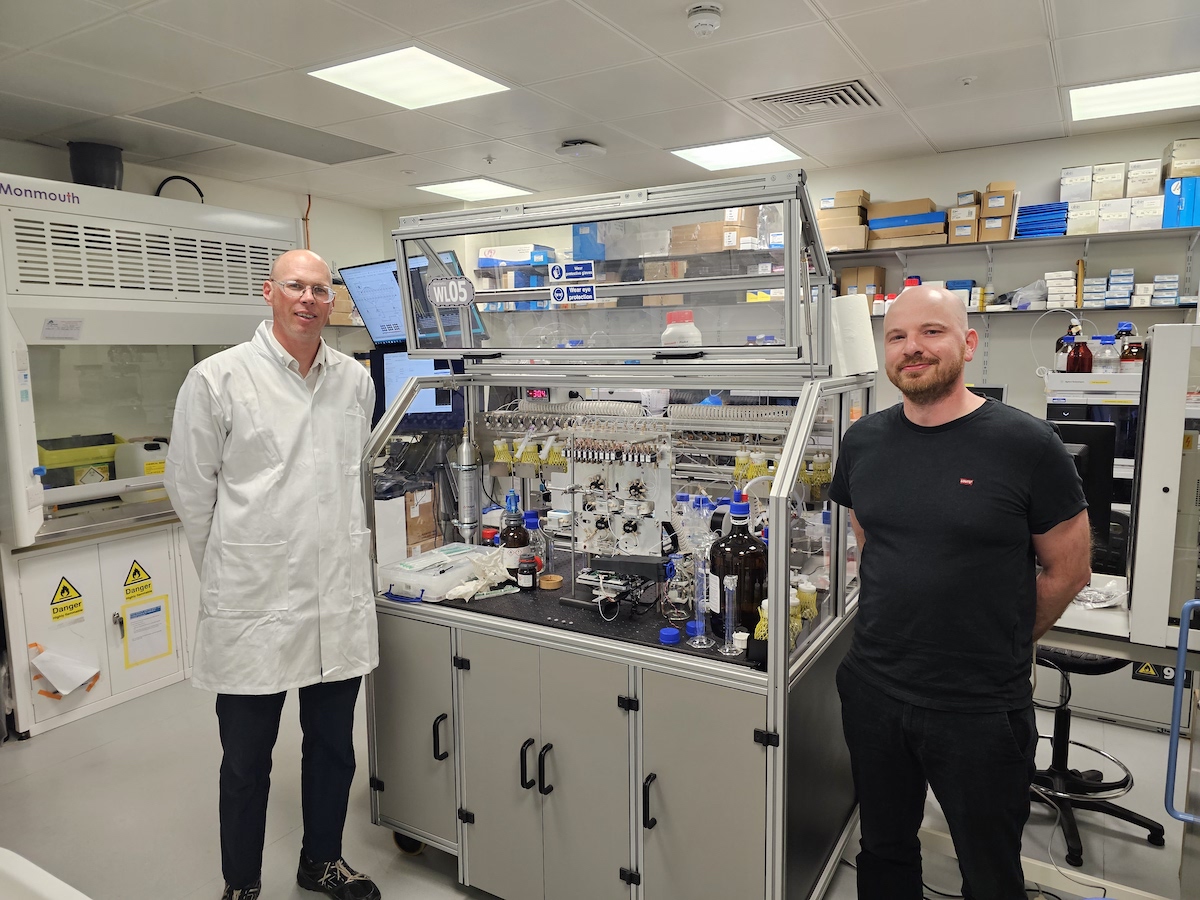Channels
Special Offers & Promotions
Evonetix places first DNA synthesis development platform at Imperial College London

External placement marks a key milestone in the development of Evonetix’s benchtop DNA synthesis technology, in preparation for customer use and commercialization
EVONETIX LTD, the Company developing semiconductor scale technology to improve access to gene synthesis, has announced its first placement of a DNA synthesis development platform for evaluation at Imperial College London. This is the Company’s first platform to be installed in an external scientific setting; a significant milestone as it continues to optimize its gene synthesis technology in preparation for customer use and commercialization.
The platform has been placed in labs led by Dr Marko Storch, Head of Synthetic Biology and Automation, London Biofoundry, and Professor Paul Freemont, Head of Structural and Synthetic Biology, Department of Infectious Disease, Imperial College London. The installation of this platform follows the delivery of Evonetix’s chip-synthesized DNA for evaluation to Dr Jenny Molloy, Co-chair of the Engineering Biology Interdisciplinary Research Centre at the University of Cambridge earlier this year.1
Evonetix’s DNA synthesis platform combines patented semiconductor chip design and proprietary, thermally controlled synthesis chemistry, bringing novel approaches to chemistry and process control to enable DNA synthesis on the benchtop of any lab. Better access to gene-length DNA will be transformative for engineering biology research, with applications across the healthcare, biotech, agriculture, and food industries.
Colin McCracken, Chief Executive Officer at Evonetix, said: “Reaching this major milestone demonstrates continued confidence in the progress of our technology and represents a significant step forward in delivering on our vision to place benchtop gene synthesis into the hands of all researchers.”
Dr Marko Storch, Head of Synthetic Biology and Automation, London Biofoundry, Imperial College London, commented: “Evonetix’s platform is an exciting new development in DNA synthesis, and we are delighted to have the opportunity to host it in our lab. Rapid access to gene-length DNA synthesis will transform our research capabilities and drive the development of our sophisticated and innovative automation platforms and workflows to support cutting-edge synthetic biology research.”
Dr Paul Freemont, Head of Structural and Synthetic Biology, Department of Infectious Disease, Imperial College London, added: “We are excited to be the first to receive Evonetix’s DNA synthesis platform. The limitations of the current service model for accessing long synthetic DNA, including turnaround time and costs, create barriers in our synthetic biology research. Evonetix’s technology has the potential to completely change the way we produce and use DNA, enabling flexibility and speed that will have a significant impact on the way we conduct our research into human disease and infection.”
Evonetix is reimagining biology by developing a radically different approach to gene synthesis – a highly parallel desktop platform to synthesize DNA at unprecedented accuracy and scale. The technology builds on scalability and density from the semiconductor industry to deliver a step-change in performance for the production of DNA. The company’s platform will place DNA synthesis in the hands of every researcher and change how DNA is accessed, made and used. This new paradigm in gene synthesis will facilitate and enable the rapidly growing field of synthetic biology.
The proprietary Evonetix approach utilizes a silicon chip, made by MEMS processing, that integrates physics with biology, and controls the synthesis of DNA at many thousands of independently controlled reaction sites or ‘pixels’ on the chip surface in a highly parallel fashion. The approach is compatible with both chemical and enzymatic DNA synthesis. Following synthesis, strands are assembled on-chip into double-stranded DNA in a process that identifies and removes errors, providing accuracy that is several orders of magnitude better than the conventional approach.
The Evonetix DNA writer will be a desktop device, available to every researcher, and providing scalable, accurate DNA synthesis to enable biological systems to be engineered with unprecedented accuracy and scale – this is third-generation DNA synthesis.
Media Partners


